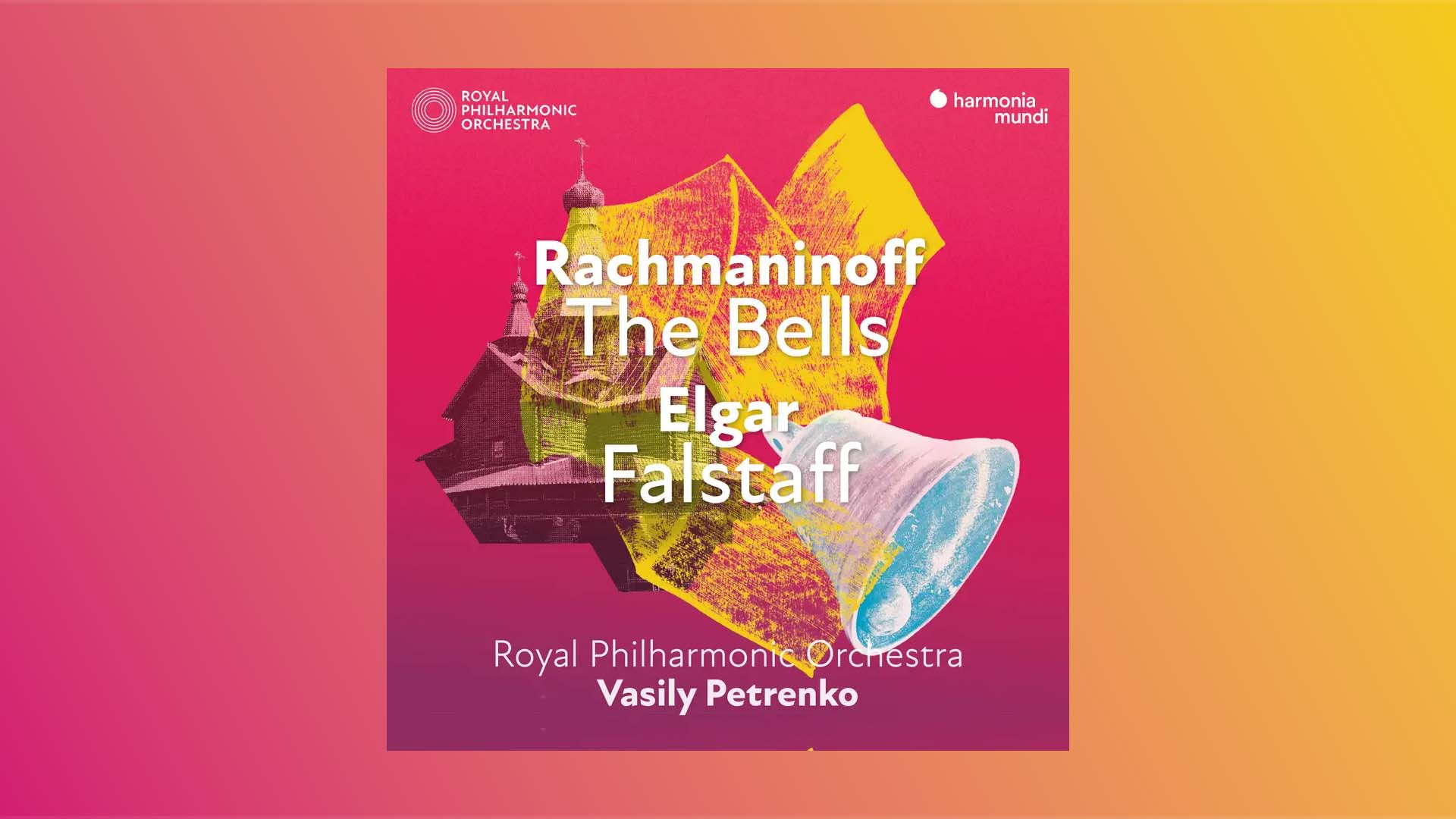To inaugurate their collaboration with harmonia mundi, Music Director Vasily Petrenko and the Royal Philharmonic Orchestra have recorded a programme as subtle as it is unexpected, with two seldom-heard masterpieces of 1913. From the bitingly ironic Shakespearian portrait of an ageing knight (Falstaff), to an existential meditation inspired by Poe (The Bells), both these ‘literary’ scores dramatically prolong the enchantments of a dying romanticism. The album, featuring soprano Mirjam Mesak, tenor Pavel Petrov and baritone Andrii Kymach is available now.
Petrenko writes in his liner for the album:
“When we say that an artist has become an icon, we mean it as a compliment. An icon is an image, an unchanging ideal – perfection, in other words, to be contemplated and revered. But what happens when an icon becomes so familiar that we start to take it for granted? Then it’s time to look – and listen – afresh. In our Icons Rediscovered series, the musicians of the Royal Philharmonic Orchestra and I revisited two much-loved composers who might, perhaps, be described as ‘icons’: the Russian Sergei Rachmaninov and the Englishman Edward Elgar. And we set out to approach them with open minds and fresh ears.
“To me, these two composers make an illuminating (if counterintuitive) pairing. On the surface, perhaps, there are not many points of similarity between the socially anxious Worcestershire violin teacher and the tall, melancholy exile from Imperial Russia who (slightly to his own surprise) became the world’s most famous pianist. Elgar belonged to an older generation than Rachmaninoff, and while Elgar was the self-made son of a provincial shopkeeper, Rachmaninoff was an affluent member of the Russian gentry.
Both men found their creative and professional peak in the first decade and a half of the 20th century, and both felt lost and displaced in the world that emerged from the First World War. In Rachmaninoff’s case, the loss was unignorable; having fled a revolution-torn Russia in 1917 with little more than a suitcase full of scores, he never saw his homeland again. Elgar, on the other hand, was a pillar of the post-war British Establishment, laden with honours. But his creative impulse had left him. Friends saw a lonely, disappointed man who shunned music and hid his emotions behind that famous moustache, and the brusque manner of a country squire.
Somehow, both composers came to embody the musical spirit of their nations. Contemporary critics occasionally grumbled that Rachmaninoff’s music sounded ‘western’ or ‘cosmopolitan’, and even today it’s often remarked that Elgar’s musical language belongs to the world of Wagner and Richard Strauss, rather than the folk-music collectors who were trying to create a distinctly ‘English’ music at around the same time.
And yet, in times of anxiety and emotion, many Russian listeners turn instinctively to Rachmaninoff, just as it is Elgar’s melodies (not all those admittedly lovely folk songs) that British listeners describe as their ‘second national anthem’. ‘I am folk music!’ said Elgar, with pride – and had Rachmaninoff been able to return to Russia and see how much his music was loved, he might have said much the same thing.
Yet these two composers also possessed a quality that transcended nationality – something eternal, and universal. Yes, they were men of their time and culture, but they had the artist’s (sometimes lonely) gift of seeing further and deeper, perceiving shadows as well as sunlight, and feeling the doubts and fears that lay beneath the outward confidence of an imperial culture at its glittering height. Nowhere is that paradox clearer (and more moving) than in these two extraordinary, deeply personal masterpieces, Falstaff and The Bells – both written in 1913 and premiered (and perhaps, as artists, these composers sensed it) in what would be the last peaceful autumn of the world that vanished into the abyss in August 1914.
Both works are attempts to probe the spirit of a nation. Elgar was a voracious reader and a lifelong admirer of his fellow-Midlander William Shakespeare (he even lived for a short while in Stratford-upon-Avon). And after all, which of Shakespeare’s creations embodies Englishness (in all its contradictions) more completely than the gluttonous knight Sir John Falstaff – boaster, dreamer, soldier and buffoon, a life-force of unstoppable, incorrigible exuberance? But like the Bard himself (and almost every note of Elgar’s ‘symphonic study’ is based on a specific quote from Shakespeare), Elgar could see the flipside too: the melancholy, the anxiety, and an intense awareness that all good things must pass. Elgar was a lifelong countryman; Falstaff, at his end, ‘babbled of green fields’.
For Rachmaninoff, too, the sound of Orthodox church bells were the voice and soul of Russia – his Russia, a world that had only a few brief years left to live. The bells of old Russia, he said ‘vibrated with human emotion’, bronze-voiced heralds of joy, terror, love and death. I can understand why, of all his works, it was (he said) the one that he valued the most. The emotional journey of The Bells has the inevitability and the force of the changing seasons in Russia, but it’s also a narrative of life itself, expressed with Rachmaninoff’s unrivalled gift for melody. Falstaff, in Elgar’s very different way, does something similar. In exploring the essence of their respective nations, Elgar and Rachmaninoff show us the innermost secrets of their own hearts – and share something of what it means to be human.



